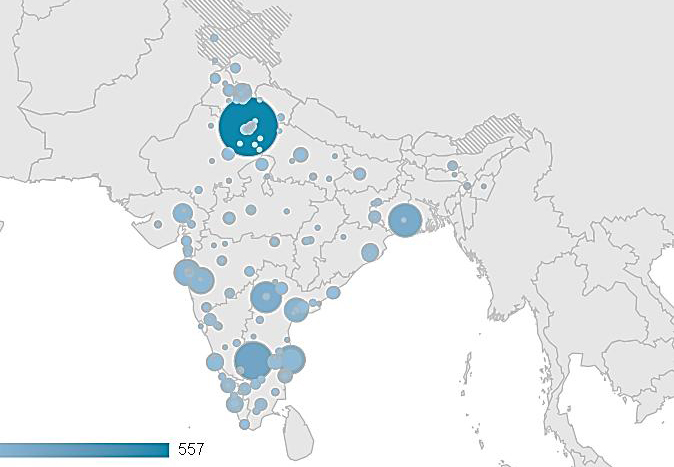UCT's free medical books go platinum
18 November 2016 | Story by Newsroom
At a rate of one download every 90 seconds, chapters from Professor Johan Fagan's ear, nose and throat (ENT) textbook series have been downloaded for free more than a million times, this only two years since it was published online.
A few years ago, Fagan, of UCT's Division of Otorhinolaryngology, noted with dismay how the cost of printed textbooks was skyrocketing.
A new set of operative surgery textbooks may cost colleagues working in some African countries as much as a month's salary, he says. Much of the content in modern textbooks has limited relevance to surgical practice in a developing country setting anyway, he adds.
After two publishers refused to allow two senior international ENT authors to make their older, out-of-print textbook available for free, Fagan wrote the Open Access Atlas of Otolaryngology, Head and Neck Operative Surgery. The Open Access Guide to Audiology and Hearing Aids for Otolaryngologists was hot on its heels. Soon, international experts were queuing up to write open-access chapters.
So far, 85 chapters have been written – for free. It's all registered with Creative Commons; there are no copyright restrictions; and readers are encouraged to use, copy and quote text as they wish.
“Because we can track the number of times that individual chapters are downloaded, it is also now possible to determine what topics are most popular, compared to a textbook where the content an editor includes amounts to little more than a thumb suck of what he or she thinks the reader may wish to read,” says Fagan.
It also means that chapters can be modified or updated whenever the author wishes to do so; there is no expense to use colour illustrations; and the books can be accessed in most parts of the world if the user has access to a mobile device.
“At the height of the Syrian War we had downloads coming from Damascus, so there was obviously one surgeon or doctor in Damascus who required some information and was downloading information as to how to do the surgery,” Fagan said when the Open Access Atlas was first published.
Volunteers have translated some chapters into Portuguese and Spanish, and all chapters have recently been translated into French by the French ENT Society.
Story Yusuf Omar. Photos Supplied.
 This work is licensed under a Creative Commons Attribution-NoDerivatives 4.0 International License.
This work is licensed under a Creative Commons Attribution-NoDerivatives 4.0 International License.
Please view the republishing articles page for more information.










